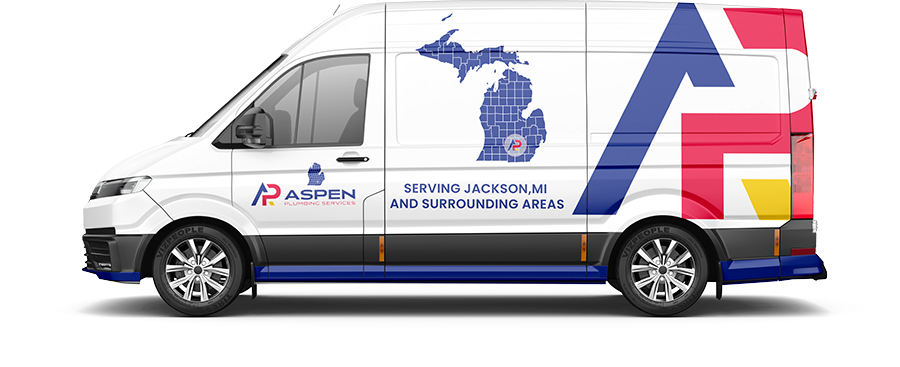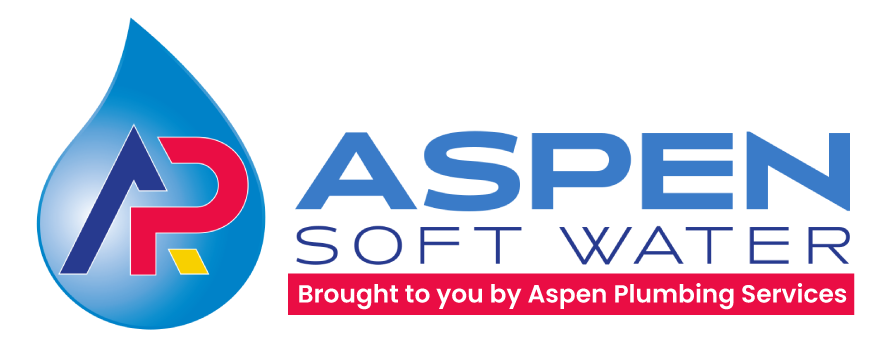Ysplianti, Michigan Plumbers
For those seeing a fast and reliable plumber in Ypsilanti, Michigan, look no further than Aspen Plumbing Services! From repair to installation, we handle it all!
Plumbing Services in Ypsilanti, Michigan
Plumbing
From kitchens to bathrooms to repair and installation, Aspen Plumbing offers a wide range of plumbing services in Ypsilanti, Michigan and we can tackle it all.
Water Quality
We specialize in water softening, filtration, and purification services in and around Ypsilanti, Michigan. Clean, filtered water starts with us!

Drain Cleaning
Our plumbers in Ypsilanti, Michigan have the tools and knowledge to assess and fix any drain clog inside or outside of your home.
Water Heaters
We service traditional water heaters, as well as tankless water heaters. This includes repair, replacement, maintenance, or a brand new installation.
Licensed Plumbers in Ypsilanti, Michigan
Founded in 1981, we are dedicated plumbers, committed to exceptional customer satisfaction. Our team of expert plumbers are focused on delivering unmatched service and reliability to the Ypsilanti community. We strive to exceed expectations, ensuring that every customer receives an outstanding experience with us.
We specialize in designing, installing, and repairing plumbing systems and appliances for both residential and commercial properties. We take great pride in the quality of our Ypsilanti plumbers, whose professionalism and integrity are evident from the moment they arrive on your job site. Our goal is to make your experience as smooth and pleasant as possible. If any issues arise, rest assured we will go above and beyond to resolve them promptly.
Other Home Services We Offer In Ypsilanti, Michigan
We’re not just expert plumbers. We also specialize in heating & cooling, water treatment, and drain cleaning and we offer these services to the Ypsilanti, Michigan area.

Heating & Cooling
Heating, air conditioning, duct cleaning, boilers, generators, and more!

Water Softening/Filtration
Need a new water softener? Curious about what’s in your water? Aspen Soft Water can help!

Drain Cleaning
Don’t stress over clogs! We have the skills to tackle drain clogs of all sizes.
Complete Home Maintenance Plans To Keep Your Equipment Running Strong
Comfort Club

Join Our Comfort Club
What's Included:
- Whole Home Maintenance Inspection
- Whole Home Maintenance Services
- Plumbing System Maintenance
- Water Heater Flush
- Heating & Cooling Maintenance
- Furnace & A/C Tune Up
- Electrical System Safety Inspection
- Carbon Monoxide & Smoke Detector Inspection
Why It Pays To Be A Member:
- 15% Discount on All Services
- Priority/Front Of The Line Services
- No Standard Diagnostic Fees
- Extend the Life of Your Equipment
- Keep Manufacturer’s Warranty Valid
- Keep Extended Warranties and Guarantees in Effect
Plans Starting at $20/month
Current Members
Current members of our Comfort Club can schedule services when it is convenient below. If you have any questions about your current plan, services that are included, when your next service is due, etc. feel free to call our main office line to speak with a specialist who can assist you.
Plumbing F.A.Q’S
Frequently Asked Questions
Why is My Toilet Constantly Running?
A constantly running toilet is not only annoying but also wastes water and increases your utility bill. Here are some common reasons why your toilet won’t stop running and how to fix them:
1. Faulty Flapper
The flapper is a rubber seal at the bottom of the tank that lifts when you flush, allowing water to flow into the bowl. If the flapper is worn out, warped, or not sealing properly, water continuously leaks into the bowl, causing the toilet to run.
How to fix it:
Turn off the water supply to the toilet.
Open the tank and inspect the flapper for damage.
If the flapper is old or deteriorated, replace it with a new one from a hardware store.
Ensure the flapper chain isn’t too tight or too loose—there should be a small amount of slack when closed.
2. Improper Chain Length
If the flapper chain is too short, the flapper won’t close properly. If it’s too long, it can get tangled and prevent a full seal.
How to fix it:
Adjust the chain so there’s just enough slack for the flapper to close completely after flushing.
3. Malfunctioning Fill Valve
The fill valve refills the tank after each flush. If it’s worn out or misaligned, it may keep running even after the tank is full.
How to fix it:
Adjust the float on the fill valve to ensure it stops the water at the correct level.
If adjusting the float doesn’t work, replace the fill valve.
4. High Water Level in the Tank
If the water level is too high, it will continuously drain into the overflow tube, causing the toilet to run.
How to fix it:
Locate the adjustment screw on the fill valve and lower the float to set the water level about 1 inch below the overflow tube.
5. Leaky or Misaligned Overflow Tube
If the overflow tube is cracked or positioned incorrectly, it can cause constant water flow.
How to fix it:
Check for cracks in the overflow tube and replace it if needed.
Ensure the water level is set below the overflow tube’s top edge.
When to Call a Plumber
If you’ve checked these common issues and your toilet is still running, there may be a more complex problem with the internal plumbing or water pressure. A professional plumber can diagnose and repair the issue to prevent excessive water waste and high bills.
What Maintenance Does a Water Softener Require?
Regular water softener maintenance ensures it runs efficiently, extends its lifespan, and keeps your water free of hard minerals. Here are the key maintenance tasks for a water softener:
1. Refill the Salt Regularly
Water softeners use salt to regenerate the resin beads that remove hard minerals. Check the brine tank at least once a month and refill it when salt levels are low. Use high-quality salt pellets to minimize buildup and avoid using rock salt, which contains more impurities.
2. Clean the Brine Tank
Over time, salt residue and impurities can build up, affecting performance. Clean the brine tank every 6-12 months:
Empty the tank and remove any sludge or salt bridges.
Rinse it with warm water and mild soap.
Refill with fresh salt and water.
3. Break Up Salt Bridges
Salt bridges form when salt hardens into a solid layer, preventing proper regeneration. If you notice a crusty buildup:
Gently break it apart with a broom handle.
Use warm water to dissolve tough salt bridges.
4. Check the Resin Beads
Resin beads trap hard minerals, and over time, they may lose effectiveness. If you notice hard water signs (soap scum, scale buildup), consider adding a resin cleaner to the brine tank during a regeneration cycle.
5. Inspect and Clean the Venturi Valve
The Venturi valve helps draw brine into the softener. It can become clogged with dirt or sediment, affecting efficiency. Clean it every 6 months by:
Turning off the water softener.
Removing and rinsing the valve with warm water.
6. Check for Salt Mushing
Salt mushing occurs when salt turns into sludge at the bottom of the brine tank, blocking water flow. If your water softener isn’t regenerating properly, remove the mush and clean the tank before refilling it.
7. Test Your Water Hardness
Use a water hardness test kit to check if your softener is working properly. If your water still feels hard, the system may need adjustments, cleaning, or resin replacement.
8. Inspect for Leaks or Malfunctions
Regularly check for leaks, clogged lines, or low water pressure. If you experience issues like continuous regeneration cycles or salty water, consult the user manual or call a plumber.
9. Replace the Resin Beads (Every 10-15 Years)
If your water softener is older and no longer softens water effectively, the resin beads may need replacing.
10. Schedule Professional Maintenance
An annual professional inspection ensures optimal performance. A plumber can check settings, clean internal components, and diagnose potential issues.
Regular maintenance keeps your water softener working efficiently, prevents breakdowns, and ensures your home gets high-quality soft water.
Can a Tankless Water Heater Provide Enough Hot Water For a Large Household?
Yes, a tankless water heater can provide enough hot water for a large household, but there are a few important factors to consider in order to ensure it meets your household’s needs.
1. Size and Flow Rate
Tankless water heaters have a flow rate, measured in gallons per minute (GPM), which determines how much hot water they can supply at once. A typical tankless water heater for a large household should have a high enough GPM to meet the demands of multiple fixtures (showers, sinks, appliances) simultaneously.
For a large household with multiple bathrooms, consider a higher-flow rate unit, typically between 7 to 10 GPM. This allows for multiple people to shower, do laundry, and run the dishwasher at the same time without running out of hot water.
2. Temperature Rise
Tankless water heaters heat water on demand, so the temperature rise (the difference between the incoming cold water temperature and the desired hot water temperature) is crucial. In colder climates where the incoming water temperature is low, a tankless unit may struggle to provide hot water for multiple uses at once.
To ensure your tankless water heater can handle the demand, choose a model that can handle your specific temperature rise needs based on the local climate and your desired water temperature.
3. Multiple Units for Larger Households
For large households with high hot water demands, installing two or more tankless units can be a great solution. This allows the units to share the workload, ensuring there is always hot water available, even during peak usage times. This setup is called a multi-unit system and can be configured for different zones or parts of the house (e.g., one for bathrooms, another for the kitchen).
4. Installation Considerations
Tankless water heaters typically require larger gas lines or electrical service compared to traditional tank units. Ensure your home’s plumbing and electrical systems can support the unit you choose, particularly if you’re planning to use multiple units.
5. Pros for Large Households
Endless Hot Water: Unlike traditional tank heaters, tankless units provide hot water continuously, as long as they are sized correctly.
Energy Efficiency: Tankless units are more energy-efficient than traditional tank heaters because they heat water only when needed, not continuously.
Space-Saving: They are compact and wall-mounted, freeing up space in your home for other uses.
6. Consider Usage Patterns
Tankless heaters excel in homes with staggered water usage, such as when people shower at different times or do laundry while others are bathing. However, if your family tends to use large amounts of hot water simultaneously (e.g., multiple people showering at once), you’ll need a higher-capacity unit or multiple units to meet this demand.
When to Consider a Tankless Heater for a Large Household:
The home has multiple bathrooms.
Simultaneous hot water use is frequent (e.g., multiple showers, laundry, dishwashing).
You prefer an endless supply of hot water and reduced energy bills.
In Conclusion:
A tankless water heater can certainly provide enough hot water for a large household, as long as it’s appropriately sized based on your household’s needs and water usage patterns. If you have concerns about capacity, installing more than one unit or choosing a high-flow model can ensure your family always has access to hot water.
What is Hydrojetting, and How Does it Work?
Hydro jetting is a powerful and effective method used to clean and clear clogged or blocked pipes in plumbing systems. It involves using high-pressure water streams to remove debris, grease, tree roots, and other obstructions that accumulate inside the pipes over time. This process can restore optimal water flow and prevent future clogs. Here’s how it works:
1. The Hydro Jetting Process
Preparation: A plumber will begin by inspecting the affected pipes, typically using a camera inspection to locate the exact location of the blockage and assess the condition of the pipes.
Inserting the Hose: The plumber then inserts a high-pressure hose into the pipe through a clean-out or an accessible point in the plumbing system. The hose has a special nozzle that directs water in multiple directions.
Water Pressure: The hydro jetting machine generates water pressure typically ranging from 3,000 to 4,000 psi (pounds per square inch), which is much more powerful than a standard garden hose. This pressure is enough to break apart and push through tough blockages like tree roots, grease, and mineral buildup.
Cleaning: As the plumber slowly moves the hose through the pipe, the high-pressure water scrubs the inner walls, removing any buildup or debris. The water pressure can clear out even the most stubborn blockages and clean the entire pipe, not just the area around the clog.
Flushing: Once the pipes are clear, the plumber may flush the system with more water to ensure all debris is washed out, leaving the pipes completely clean.
2. Benefits of Hydro Jetting
Thorough Cleaning: Unlike other methods, such as snaking or using chemicals, hydro jetting cleans the entire pipe, not just a small portion around the clog. It removes buildup, grease, tree roots, and even mineral deposits.
Preventative: Regular hydro jetting helps prevent future clogs and can extend the life of your plumbing system by keeping the pipes clean and free from debris.
Environmentally Friendly: Hydro jetting uses only water and no harsh chemicals, making it an eco-friendly option for pipe cleaning.
No Damage to Pipes: Unlike mechanical snaking or chemical cleaners that can potentially damage pipes, hydro jetting is gentle and safe for most pipe materials when done properly.
Improved Water Flow: By clearing all blockages and buildup, hydro jetting restores the full capacity of your plumbing system, improving water flow and reducing pressure issues.
3. Ideal Situations for Hydro Jetting
Hydro jetting is ideal for clearing:
Grease and Fat Buildups: In kitchen drains, where grease can accumulate and solidify, causing blockages.
Tree Roots: In outdoor drains, especially in older homes, tree roots may invade the pipes and cause severe blockages.
Mineral Deposits: In areas with hard water, mineral deposits can line the insides of pipes and restrict water flow.
General Clogs: For tough, stubborn blockages that can’t be cleared with a standard plunger or drain snake.
4. When Not to Use Hydro Jetting
Fragile Pipes: Hydro jetting may not be recommended for old, fragile pipes, such as clay or cast iron, that are easily damaged. A plumber will assess your pipes before deciding on the best method.
Severe Pipe Damage: If there are cracks or breaks in the pipes, hydro jetting could potentially worsen the damage.
5. Professional Use
While hydro jetting is highly effective, it requires specialized equipment and knowledge to perform safely. It’s typically done by professional plumbers who have the training to handle high-pressure water systems and assess pipe conditions correctly. Using the wrong technique or too much pressure on weak pipes can cause further damage.
In Conclusion
Hydro jetting is an advanced and efficient method for clearing stubborn clogs, restoring water flow, and cleaning your plumbing system. It provides long-lasting results, prevents future blockages, and is eco-friendly. If you’re facing recurring clogs or a tough blockage, hydro jetting may be the perfect solution to restore your plumbing to peak performance.
Not Around Ypsilanti, Michigan? Browse Our Service Area!
Not in Ypsilanti, Michigan? No worries! We serve all of Jackson County and large portions of surround counties including: Ingham County, Eaton County, Calhoun County, Branch County, Hillsdale County, Lenawee County, & Washtenaw County.
For a complete list of cities that we serve, click on the link below or feel free to give us a call any time to speak to a member of our team.
Aspen Plumbing Services

- 4131 W. Michigan Ave., Jackson, MI 49202
- Phone: (517) 750-9913
- Fax: (517) 750-0900
- Available 24/7
Contact Us
"*" indicates required fields

